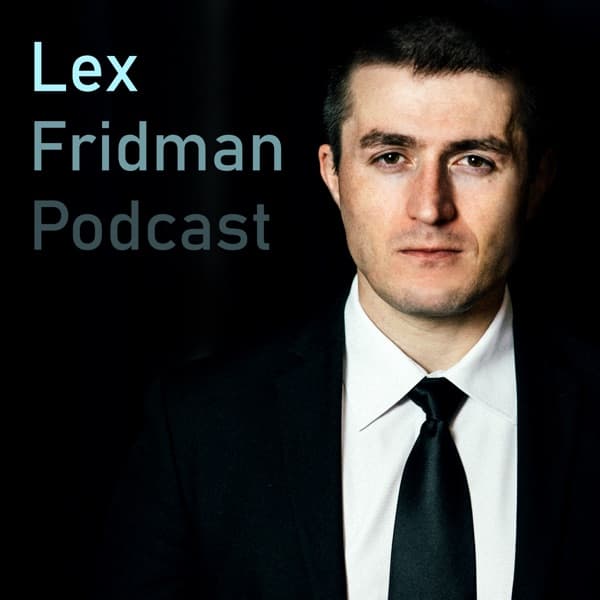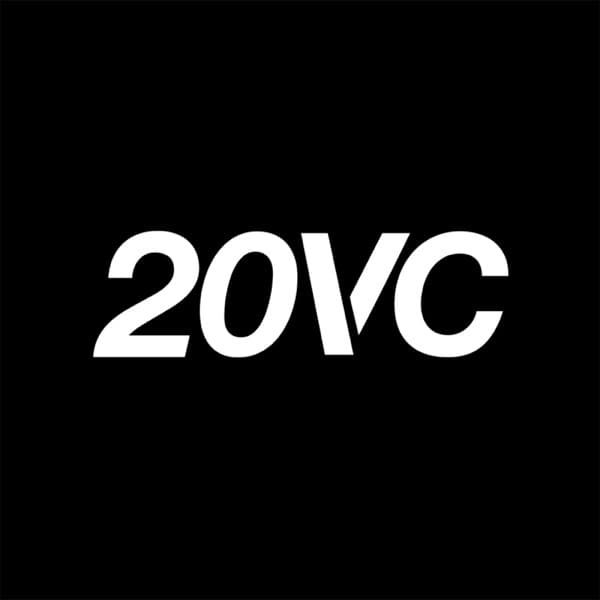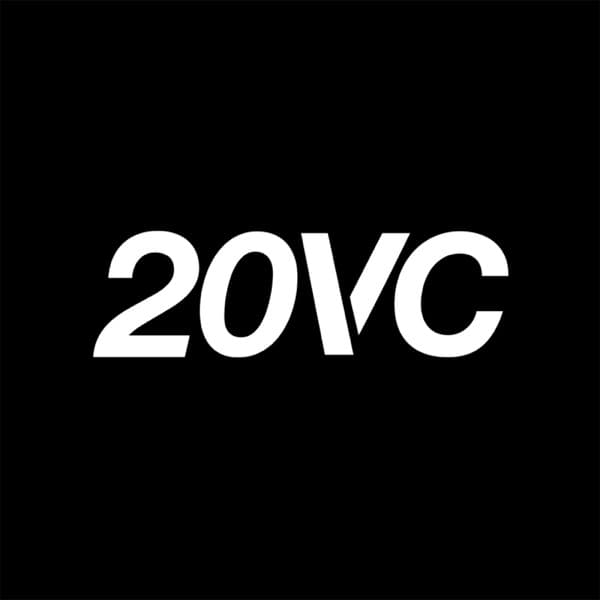The Twenty Minute VC (20VC): Venture Capital | Startup Funding | The Pitch: Oscar Pierre, founder of Glovo, shares his journey of building a successful food delivery platform, highlighting challenges in fundraising, market expansion, and maintaining company culture.
The Twenty Minute VC (20VC): Venture Capital | Startup Funding | The Pitch - 20VC: The Insane Story of Glovo: Selling 30% of the Company for €100K | The McDonalds Deal That Saved Them | Running out of Money Three Times | Burning $1M Per Day | Being Acquired for $2.2BN with Oscar Pierre, Founder @ Glovo

Oscar Pierre, founder of Glovo, recounts the company's journey from its inception to becoming a major player in the food delivery industry. Initially, Glovo faced skepticism from European VCs, with many passing on investment opportunities. Despite this, the company secured a pivotal deal with McDonald's, which significantly boosted its growth and market presence. Pierre emphasizes the importance of scale in the food delivery business, noting that achieving a large market share is crucial for profitability. He also discusses the challenges of maintaining company culture during rapid expansion, highlighting the need for transparency and alignment with company values. Pierre's story underscores the importance of perseverance, strategic partnerships, and adapting to market dynamics in building a successful startup.
Key Points:
- Securing a major partnership with McDonald's was a turning point for Glovo, enabling rapid growth and market expansion.
- Maintaining company culture during rapid growth is challenging but essential for long-term success.
- Achieving scale is crucial in the food delivery industry to ensure profitability and competitive advantage.
- Fundraising was a significant challenge, with many European VCs initially skeptical of Glovo's potential.
- Strategic market expansion, including entering underdeveloped markets, was key to Glovo's growth strategy.
Details:
1. 📈 The Early Struggles and Breakthroughs of Glovo
1.1. Initial Financial Challenges
1.2. Major Breakthroughs
2. 🚀 The Meteoric Rise and Achievements of Glovo
- Glovo was founded by Oscar Pierre 11 years ago with a vision to revolutionize delivery services. The company began with significant challenges, including selling a third of the company during its pre-seed round for only 100,000 euros, highlighting early financial constraints.
- A pivotal moment in Glovo's history was securing a partnership with McDonald's, which played a significant role in stabilizing and growing the company. This partnership not only saved Glovo from potential financial difficulties but also established it as a key player in the market.
- Over the years, Glovo's strategic maneuvers and growth led to its acquisition by Delivery Hero, marking a significant milestone in its journey. This acquisition underscores Glovo's success and its position as a leading force in the global delivery industry.
3. 🎓 Introducing Kajabi: A Platform for Creators
- Kajabi's customers have collectively generated over $8 billion in total revenue.
- Kajabi users retain 100% of their earnings, with the average user earning over $30,000 annually.
- Kajabi offers an all-in-one suite of tools, including websites, email marketing, digital products, payment processing, and analytics, starting at $69 per month.
- Kajabi allows creators to build and grow their online business without taking a cut of revenue.
- 20 VC listeners can access a 30-day free trial of Kajabi by visiting kajabi.com/20VC.
4. 🔎 AlphaSense: A Game-Changer for Research Professionals
4.1. AlphaSense as a Research Tool
4.2. AlphaSense Features and Market Positioning
5. 🏦 Mercury: Simplifying Banking for Startups
- Mercury offers an easy account setup process, enabling founders like Sanpei Omichi of Ellis.com to open accounts immediately, facilitating quick business operations.
- Mercury provides comprehensive financial services, including Treasury and checking accounts, to streamline financial management for startups.
- Founders using Mercury can efficiently manage their finances and business activities in a centralized platform.
- Mercury is not a bank but partners with Choice Financial Group, Column NA, and Evolve Bank and Trust for banking services, ensuring reliability and FDIC membership.
6. 🌟 Building Glovo: Challenges, Insights, and Expansions
- Glovo was founded in 2015, marking a rapid growth trajectory alongside competitors like Twin ABC.
- Oscar Pierre, the founder, launched Glovo with the vision of creating an 'Uber for errands,' inspired by his observations of his mother's hectic schedule and the Uber launch in Atlanta.
- The initial business model focused on digitizing everyday errands, allowing users to request tasks such as picking up items from stores, highlighting a niche market opportunity.
- A significant market insight emerged when users began ordering McDonald's Big Macs through the app, which revealed a substantial demand for food delivery, even with existing services like Just Eat, indicating a gap in market disruption.
- The company's ability to pivot quickly from errands to food delivery was crucial to its early success, showcasing adaptability and responsiveness to user demands.
- Despite a competitive landscape, Glovo's unique approach to on-demand delivery set it apart, allowing for rapid expansion and market penetration.
7. 🌍 Global Expansion and Market Strategies
- The initial launch in Barcelona identified a gap in the market for a delivery service that also managed logistics, unlike Just Eat which only aggregated restaurants.
- The founder's initial investment was 10,000 euros, which was used to develop a basic app version through a cost-effective Russian developer, leading to a pre-seed funding round of 100,000 euros that valued the company at 280K pre-money.
- The first app version was subpar but served as a prototype to attract investors, leading to profitability and sustainability.
- A significant funding round of 1.5 million followed after gaining traction and orders, including from major brands like McDonald's.
- Achieving product-market fit was challenging due to negative unit economics, but scaling network effects and shifting revenue models improved cost efficiency for customers.
- Marketplace dynamics require scale on a city or national level, with significant investments in brand-building and partnerships, often at a national scale.
- International expansion taught the importance of timing and market leadership, as seen in the failure in Paris due to late entry but success in Milan.
- Launching a new market can take 2-3 years to become profitable, with Tunisia cited as an example where 5-10 million was invested.
- The business's gross merchandise value (GMV) can reach close to 1% of a country's GDP, highlighting the significant scale and frequent use of services.
- The period between 2018 and 2022 was marked by intense VC competition, emphasizing the need for market dominance.
8. 🔥 Battling Giants and Navigating Growth
8.1. Impact of Scale on Unit Economics
8.2. Optimization and Customer Experience
8.3. Partnerships and Market Expansion
8.4. Fundraising Challenges
8.5. Cultural Differences in Fundraising
8.6. Strategic Fundraising Decisions
9. 🚧 Overcoming Financial Hurdles and Cultural Shifts
9.1. Initial Financial Crisis and Recovery Measures
9.2. Securing Large Investments Amid High Burn Rates
9.3. Successful Expansion into LATAM
9.4. Strategic Market Choices and Cost Efficiency
9.5. Learning from Market Failures
9.6. Cultural and Organizational Challenges
9.7. Leadership and Communication Adjustments
10. 💼 Leadership, M&A, and Strategic Decisions
10.1. Leadership Style and Culture Impact
10.2. Cultural Realignment
10.3. Maintaining High Standards
10.4. Growth Management
10.5. Handling Layoffs
10.6. M&A Insights
10.7. Strategic Market Focus
11. 📦 The Future of Glovo and Its Impact on E-Commerce
11.1. Expansion Strategy and Market Potential
11.2. Acquisition and Business Decisions
11.3. Post-Acquisition Insights and Future Outlook
11.4. Competitive Landscape and Risks
12. 💡 Oscar's Reflections on Entrepreneurship and Growth
12.1. Profitability and Advertising Strategy
12.2. Advertising Penetration and Growth
12.3. Desirable Partnerships
12.4. Missed Opportunities and Competition
12.5. Regulatory Challenges
12.6. European Entrepreneurship and Talent
13. 🎤 Quick Fire and Closing Thoughts
13.1. The Future of Online Commerce
13.2. Market Competition and Growth
13.3. Investor Relationships
13.4. Personal Reflections on Work Ethic
13.5. Entrepreneurial Challenges
13.6. Company Culture and Leadership
13.7. Excitement for Technological Advances
13.8. Kajabi's Business Success
13.9. AlphaSense and Research Transformation
13.10. Financial Milestones and Resilience
Included Channels
 Lex Fridman Podcast
Lex Fridman Podcast All-In with Chamath, Jason, Sacks & Friedberg
All-In with Chamath, Jason, Sacks & Friedberg Modern Wisdom
Modern Wisdom Greymatter
Greymatter In Depth
In Depth a16z Podcast
a16z Podcast Lenny's Podcast: Product | Growth | Career
Lenny's Podcast: Product | Growth | Career Lightcone Podcast
Lightcone Podcast No Priors AI
No Priors AI The Twenty Minute VC (20VC): Venture Capital | Startup Funding | The Pitch
The Twenty Minute VC (20VC): Venture Capital | Startup Funding | The Pitch How I Built This with Guy Raz
How I Built This with Guy Raz BG2Pod with Brad Gerstner and Bill Gurley
BG2Pod with Brad Gerstner and Bill Gurley Latent Space: The AI Engineer Podcast
Latent Space: The AI Engineer Podcast





